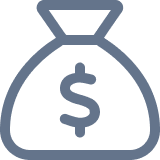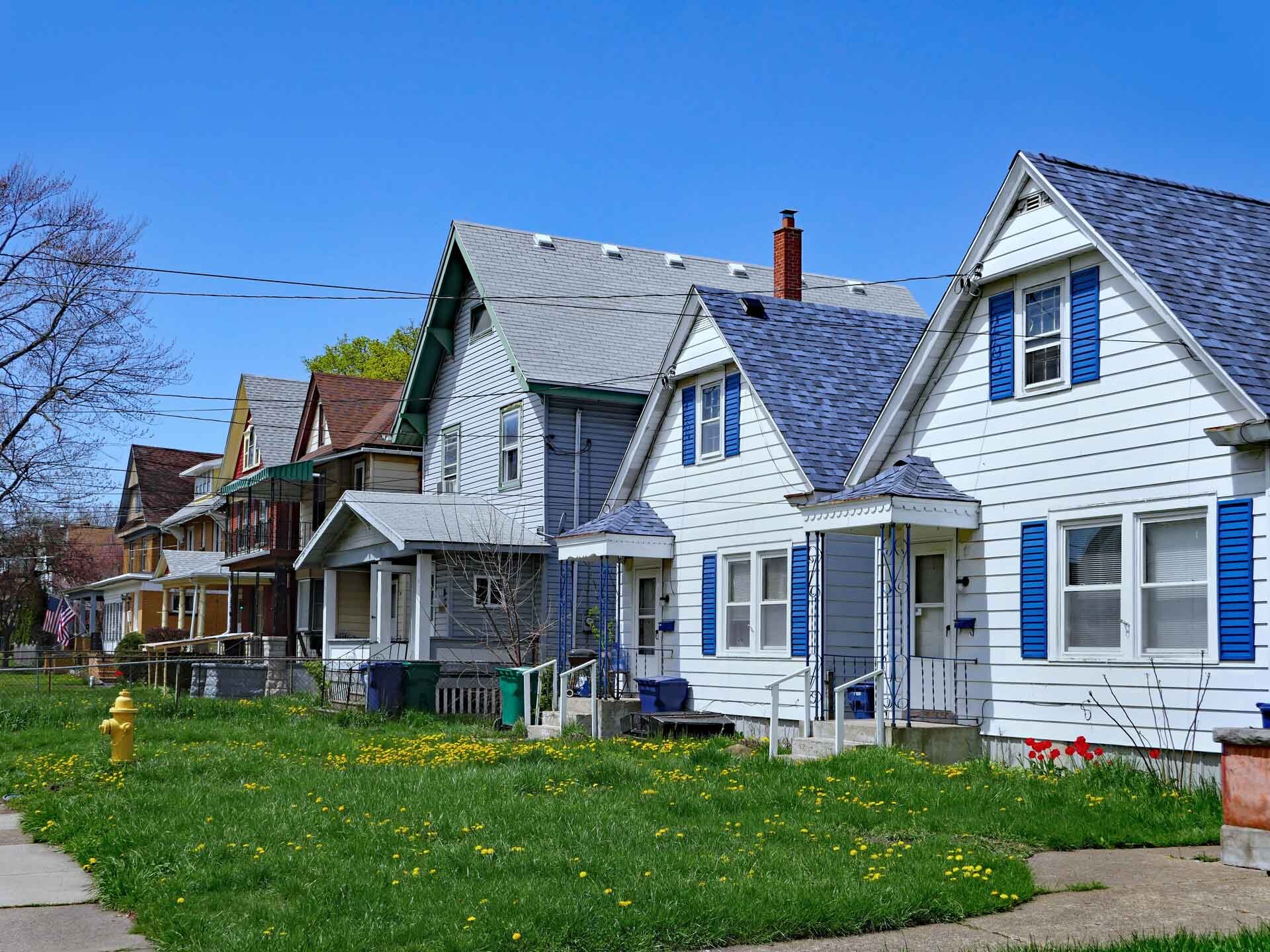Foreclosure occurs when a homeowner is unable to make their mortgage payments on time and has no way to catch up on the missed payments. Because a mortgage is a legal agreement between you and your lender, once you’ve defaulted on the loan, the lender can auction off the property to cover any outstanding debts, leaving you homeless and with terrible credit.
No one wants to receive a notice of foreclosure and yet, in a nationwide study, nearly 1 million Americans were afraid of losing their homes (U.S. Census Bureau Household Pulse Survey, fielded from July 27 to Aug. 8, 2022). Foreclosure can occur from a number of reasons, including:
- Job loss and loss of income
- Divorce or death of a spouse or partner
- Mounting debt, including medical and credit cards
- Moving without being able to sell the home
- Natural disaster
Jax Beach Family Home Buyers is a local company operating in FL that has built their business by buying distressed houses and properties in the area for cash. They promise competitive cash offers without the hassle of dealing with real estate agents, title companies, traditional bank financing, and more!
What is Foreclosure?
Imagine you or your spouse recently lost your job. The bills keep coming, but without steady income, covering everyday expenses—especially your mortgage—becomes nearly impossible. Even if you find new employment, the debt built up during that period may be overwhelming and difficult to recover from quickly.
As missed payments pile up, it becomes harder to catch up, and the financial stress can feel suffocating. If the situation continues, and the debt remains unpaid, the bank will begin the foreclosure process. This is their legal method of recovering the money owed by taking ownership of your home and selling it.
Understanding this timeline and taking early action can help you explore alternatives before the situation reaches that point.
How Long Do You Have To Get Out of Your House After Foreclosure?
The foreclosure process in most states typically follows these steps: missed payments, public notice, foreclosure filing, auction, and finally, eviction. However, the timeline for each stage can vary significantly depending on your state’s laws and whether the foreclosure is judicial or non-judicial.
In general, you may have anywhere from 120 days to as long as nine months before the bank can officially foreclose on your home. This window is critical, as it offers time to explore your options and potentially avoid losing your property.
Throughout this period, your lender will likely attempt to contact you multiple times—by phone, mail, and email—to inform you about the process and discuss possible solutions. Being responsive and informed during this time can make a big difference.
The Different Types of Foreclosure
There are two different types of foreclosure you may experience: nonjudicial foreclosure or judicial foreclosure.
What Is Non-Judicial Foreclosure?
A non-judicial foreclosure is often the fastest and least expensive method for a lender to foreclose on your FL property. Unlike judicial foreclosure, this process doesn’t require the lender to take you to court. Instead, it follows state-specific procedures outlined in the deed of trust.
In a non-judicial foreclosure, the lender uses a “power-of-sale” clause to repossess and sell your home in order to recover the outstanding debt. This process can move quickly—sometimes in just a few months—because it bypasses the court system entirely.
Not every state permits non-judicial foreclosure, but in states where it’s allowed, lenders typically prefer it to avoid legal expenses and delays. If your state allows it, understanding this process is crucial, as timelines and rights can vary significantly.
What Is Judicial Foreclosure?
In states that require judicial foreclosure, your lender must file a lawsuit in court requesting permission to sell your home. As part of this legal process, the lender is required to send you formal notice. Whether or not you agree with the foreclosure, you must respond to this notice within a specific timeframe.
If you fail to respond, the court will likely rule in favor of the lender by default, allowing them to proceed with the foreclosure sale. Once the home is sold, you may still be held responsible for paying the remaining balance between what you owe on the mortgage and the sale price of the home.
Judicial foreclosures can be lengthy and costly, and understanding your rights and deadlines is essential to protect yourself.
Auctions are very different from traditional home sales and typically result in the property being sold for less than market value. Even if your home is in excellent condition and worth significantly more than your remaining mortgage balance, you could still end up owing tens—or even hundreds—of thousands of dollars after the sale.
This remaining balance is known as a deficiency judgment, and it means you’re still financially responsible for a home you no longer own. It’s a costly and often drawn-out process for lenders to pursue, which is why many prefer non-judicial foreclosure whenever possible.
Understanding how foreclosure auctions and deficiency judgments work is crucial to protecting your financial future and exploring better options before it reaches that point.
Why Avoid Foreclosure?
Selling a house before foreclosure offers several key benefits that can protect your financial future and provide peace of mind. First and foremost, it helps you avoid the long-lasting damage foreclosure can do to your credit score, which can impact your ability to rent, buy, or borrow money for years. By selling before the bank takes over, you maintain more control over the process—including setting your own timeline and potentially negotiating better terms.
Selling also relieves you of the ongoing stress of missed payments, mounting debt, and constant contact from lenders. In many cases, you may even walk away with cash in hand, depending on your home’s equity. This fresh start allows you to avoid eviction, settle your debts, and move on without the financial and emotional toll foreclosure can bring. Taking action early by selling is often the smartest and most empowering decision in a difficult situation.
Get an offer today, sell in a matter of days.
How to Sell Your House Before Foreclosure in FL
Let’s break down a few ways you can sell your house, depending on your time frame and situation:

Hire A Real Estate Agent
When most Americans decide to sell a house or property, their first instinct is often to contact a local real estate agent. While this is a common route, it’s not always the best option—especially in challenging situations like foreclosure. A skilled agent can list your property on the MLS, schedule open houses, and attract potential buyers. However, all of that comes at a cost.
Agents typically charge a commission of 3% to 6% of the final sale price, which is deducted from your proceeds at closing. When you’re already buried in debt, trying to avoid foreclosure, and need every dollar to repay your lender or get back on your feet, losing thousands to commission fees can be overwhelming.
In high-stress situations where time and money are tight, homeowners should consider all their options—including selling directly to a cash buyer—before committing to the traditional agent route.
Plus, there’s the additional fear of not knowing when your house will actually close. Realtors may promise a lot, but at the end of the day you’ll still need to find the right buyer and wait 30+ days for a traditional close. For some homeowners who are facing auction and eviction, even waiting one month might be too long.

Short Sale
If you owe more on your home than it’s currently worth, your realtor may suggest a short sale. This happens when the market value of your home is lower than your remaining mortgage balance. For example, if you owe $200,000 but your home is worth only $150,000, a short sale becomes necessary to avoid foreclosure. While it might seem like a smart alternative, the process is often complex, lengthy, and far from easy.
First, you must get approval from your lender, which involves proving significant financial hardship through documentation such as W-2s, medical bills, or layoff notices. If your hardship is due to income loss, lenders usually require proof that your situation is long-term and unlikely to improve soon.
Once approved, you’ll need to hire a real estate agent and possibly an attorney who specializes in short sales—services that often cost the same as a traditional home sale. If you’ve stayed in touch with your lender and your foreclosure hasn’t progressed too far, they’re more likely to approve a short sale, as it saves them the time and cost of foreclosure proceedings.
However, a short sale still damages your credit. The impact can last 5 to 7 years—similar to a bankruptcy. Lenders report missed mortgage payments and the short sale itself, making it extremely difficult to qualify for a credit card, car loan, or mortgage during that time. So, while a short sale may help you reduce your debt and avoid foreclosure, it comes with serious long-term consequences that every homeowner should consider carefully.

Sell Your House AS-IS to A Cash Buyer
If you’re under a strict time restraint to sell your house before a foreclosure progresses to auction and eviction, you do have options! You can try to sell your property with a real estate agent, work with your lender to complete a short sale, or – best of all – turn to a trusted and reliable cash investor to help you with your situation.
Some of the benefits of selling to a direct cash investor include:
- A quick and pain-free closing process.
- Avoid paying any commissions or fees.
- You won’t have to worry about marketing your house and waiting for a buyer.
- No need to clean-up or complete any repairs!
When you sell your home as-is to a direct cash buyer, you not only can avoid losing your home to an auction, but you also may be able to sell the property for enough money to get out of financial debt. Moving on with your life without the burden of a monthly mortgage payment and debt hanging over your head is one of the best gifts you can give yourself!
Can You Stop Foreclosure Once it Starts?
Pay Off Your Loan & Fees
You’ve found yourself in a tough spot—your debt keeps growing while your income stays the same. It’s time to take serious steps toward regaining control. Start by looking for items you can sell to generate quick cash. Reach out to friends or family who may be able to offer a loan or financial support. If you’re truly committed to paying down debt and avoiding foreclosure, consider speaking with a financial advisor who can help you restructure your budget, reduce unnecessary expenses, and create a realistic plan.
You might need to make sacrifices, cut back on spending, or find temporary work to bring in extra income. Use one or a combination of these strategies to begin your climb out of debt. Taking action now can help prevent foreclosure and get you back on the path to financial stability—and a life with less stress and more peace of mind.
Declare Bankruptcy
Bankruptcy can stop a foreclosure as a last resort, but it comes at a steep price. The process is complicated, requiring a bankruptcy attorney and court approval. If accepted, you’ll be placed in a government-approved credit counseling program, and the bankruptcy will remain on your credit report for seven years.
This long-term mark can impact nearly every aspect of your financial life. It may limit your ability to get approved for credit cards, car loans, or even basic bank accounts. In some cases, it can also disqualify you from renting future housing or securing certain types of employment.
While bankruptcy can offer temporary relief from foreclosure, it has lasting consequences. Before choosing this path, it’s crucial to explore all other alternatives and consult with a financial professional. There may be other ways to protect your home and credit without facing the long-term impact of bankruptcy.
The Homeowner Affordability and Stability Plan (HASP)
If your debt exceeds your income, you might qualify for the Homeowner Affordability & Stability Plan (HASP)—a government-backed loan modification program designed for borrowers facing foreclosure due to financial hardship. HASP helps restructure mortgage payments to better align with your current budget.
This program aims to make monthly payments more manageable, giving homeowners a chance to stay in their homes and avoid foreclosure. It’s especially helpful for those experiencing reduced income or unexpected financial strain.
To find out if you’re eligible, simply apply through the official HASP application portal. Taking this step could provide the relief you need and help you regain control of your finances.
Related Articles
5 Ways the Foreclosure of Your Jacksonville House Will Impact You in the Future
What Homeowners in Jacksonville Can Expect During the Foreclosure Process
The Difference Between Pre-Foreclosure and Foreclosure for Homeowners in Jacksonville
How to Sell Your House During Bankruptcy in Jacksonville
Stopping the Foreclosure Process: A Guide for Jacksonville Homeowners
Sell Your House Fast to a Cash Buyer
Are you ready to sell your house but don’t have the time to wait 30+ days for a traditional close? Does a short sale seem like a fast way to ruin your credit? Prefer to pay off all your debt at once and get the bank off your back fast? A direct home buyer and cash investor might be exactly the solution you’ve been searching for! When you work with a trusted and reliable investor with a great reputation in your area, you’ll find a helpful company with cash on hand that is ready to purchase your home from your as-is. With a cash buyer, you can skip the lengthy process of foreclosure, eviction, and auction within a matter of days, and save your credit as well!
You may not get full market value for your house or property when you sell to a trusted cash investor, but the timeliness of a fast closing, and the lack of fees, required inspections, and commissions often balance this out at close. Best of all, because an investor can close fast, you can often close before the bank is able to auction off your property! This means you can sell the property for the amount that benefits you versus the pennies to the dollar price the bank will often try to sell your house for just to get it off the books.
We Buy Houses in Foreclosure & Pre-foreclosure–
Get Your Offer Today!
Does the idea of finally walking away from a property without the storm cloud of foreclosure hanging over your head? Contact a real professional at Jax Beach Family Home Buyers to find out more and get a fair cash offer for your property today.

